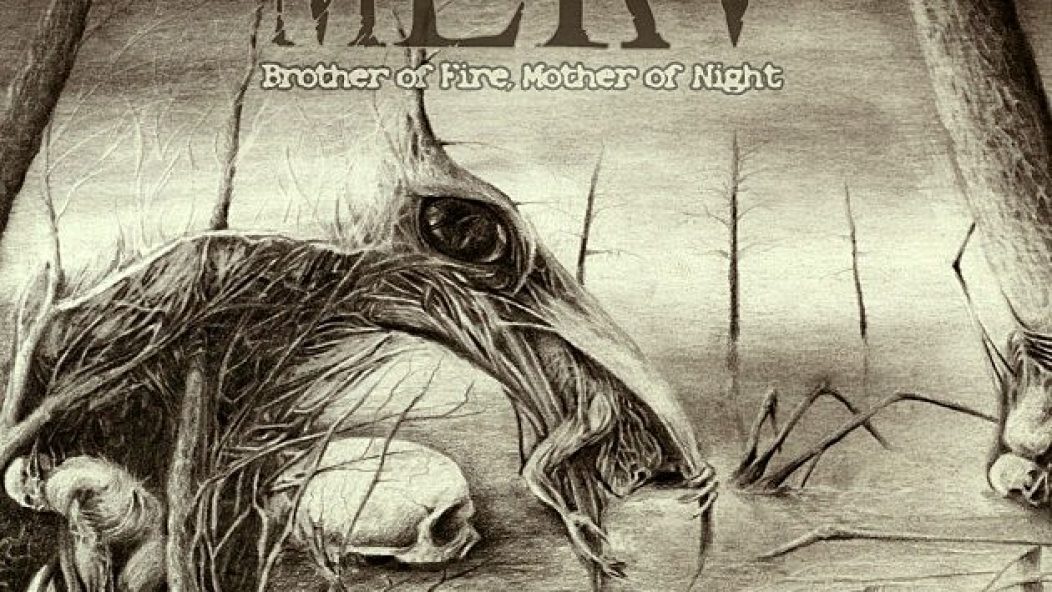
Editor's Choice January 2016
…
Most music writing is trash. I can think of several reasons for this, but I want to focus on one of the best: music writing does not value fact. I am expected to spell names correctly and to get dates right, but not much beyond that. Some reason underpins this attitude. Take two people, play them the same song. Their perceptions of that song—of individual sounds—do not align. Fair enough, subjectivity is inescapable. It is also not enough to throw fact as far out the window as we do. There is truth to be found, analyzed and reported on in music.
Data supplants the subjectivity of music criticism with fact. Data offers hard insight into soft ideas like genre. Case in point, this report on The Polygraph (a stellar website—a love letter to competence by journalist and analyst Matt Daniels), illustrating where the popular definition of punk stands.
I highly recommend you read the article (it’s short! and mostly pictures!) but if you can’t be bothered to do so, let me over-summarize: Blink-182.
My guess is that most readers drew a sharp inhale when they read that. Not that I blame them, Blink-182 make decent music at best, by my estimation. The members of the band also embraced music-making-as-moneymaking in such a way as to give their obvious inspirations a metaphorical middle finger.
None of that matters. In the minds of many—probably of most—they are literally as punk as it gets, the band that the most people can agree play punk music. If you want to argue that you cannot argue for subjectivity, you have to argue against data, and that’s valuable. If people repeat Daniels’s experiment, or tweak to to find new sources of data and come up with the same result, then it will reinforce this point.
Graphs like these show us what’s inside our own heads. Genre only exists in our minds—the music exists first and then listeners sort it into genres. Like history, it is a lie agreed upon, and in this case one that may be more useful for businesspeople trying to sell music than for the consumers.
Or maybe Daniels says it better:
“Debating whether band X is or is not genre Y always leaves me feeling a bit stupider, because they’re glorified hashtags.”
Other breakdowns in the graph carry more direct significance for the kind of things we write about here. For example, the data shows that most people agree that Bring Me The Horizon play metalcore—I remember that band first as a Black Dahlia Murder copycat band and second as a deathcore band with some electronic elements. If their sound has not changed then they’ve managed to skew the entire genre in their direction for many people.
Conversely the data says that hardcore is difficult to define with data but in my subjective experience hardcore is easy to identify. To me, the difference between other music and hardcore is the same as the difference between art and pornography; I know it when I see it.
Data like this makes me question whether or not I actually do know what I observe. If genres are a lie agreed upon then they are also democratic. This is where what I write about comes in. Last year I entertained many debates about whether or not Deafheaven count as black metal. This month, in my review of the Abbath album, I touched on Immortal’s temporary rejection from the true Norwegian black metal circle. In both instances I felt, as Daniels did, stupider for taking part in the conversation. (Black metal in particular seems to be prone to this genre debate.)
I base my gut ‘knowing’ on the same subjective ‘fact’ that persons use to discount Deafheaven, that those in the past used to discount Immortal. Our knowledge is soft, not based in fact.
I wager that if Daniels repeated his experiment with metal and not punk, that Deafheaven could have a strong correlation with black metal, much to the chagrin of their detractors.
If genre is a lie agreed upon then it is also a democracy and by definition if genre is a democracy then it is also a popularity contest. That black metal predicates itself on elitism and rejecting popularity is irrelevant.
Maybe then it is genre that is irrelevant. I am at a crossroads. I increasingly feel that discussing genre at all is less than useful. At the same time I cannot imagine writing this blog without using it.
But enough navel gazing, let’s get to some music. A note: I won’t be listing where I find this music any longer because too often it comes from the same handful of locations, but I would like to assure anyone reading this that bands can email me streaming links for Editor’s Choice consideration at: [email protected]
…
Speaking of black metal, I didn’t receive Arktis the new solo album by former Emperor mastermind Ihsahn in time to compare and contrast it with the new Abbath record, although I’m sure that thinkpiece is coming down the pipe somewhere. Those two artists represent my preferred flavor of Norwegian black metal. Where Mayhem and Darkthrone were sloppy and repetitive, Immortal and (especially) Emperor were sharp and twisted. If Emperor were the Genesis (the band) of black metal—progressive, obscure and linear but never without hooks—then Ihsahn is our Peter Gabriel, and like Gabriel he’s been indulging himself in sophisticated and heady pop music for some time. While Ihsahn’s forays into more mellow and jazz-inflected sounds is to my taste, it is also readily apparent that many of the man’s admirers aren’t so keen on the most recent leg of his career. In contrast, Ihsahn’s first solo album, The Adversary, stripped away most of his obscure tendencies in favor of ripping Mercyful Fate worship. He revived that sound on “Mass Darkness,” the first single from Arktis. Ihsahn hasn’t rocked so hard in years as he does on this song. Trivium’s Matt Heafy provides backup vocals on the (infectious and simple) chorus which, up until last year, would have been a detractor, but Heafy’s been putting his pipes to good use. I’ve listened to this song almost every day for the past month. Here’s hoping that Spinefarm’s recent acquisition of Century Media will work to Ihsahn’s benefit.
…
For some time now I’ve been putting together a history of all the metal and punk in Seattle. That story won’t be complete without Metal Church who have recently reunited with vocalist Mike Howe—the band dropped out of last year’s Maryland Deathfest after splitting with Ronny Munroe. Metal Church occupy the uneasy connective bridge between classic metal and thrash, the same space that Satan operate out of. Like Satan, Metal Church still play their classic sound more-or-less as well as they once did. Unlike Satan, I’m not sure that Metal Church will parlay their older work back into the public consciousness. They lack an easy aesthetic and thematic connection to newer classic metal revivalists. But they still write good songs. “No Tomorrow,” the lead single from their upcoming album XI offers no surprises other than a continuation of tried-and-true song mechanics and a surprising amount of low end.
…
Rhode Island by way of Portland duo The Body likewise have not always been my cup of tea. Normally I take my doom with a little more clarity. Their new album, Nobody Deserves Happiness however, skews a little more in my direction. The band themselves call it their pop record. By pop they mean melodic female vocals and synthesizer loops—the aesthetic is accessible, but the music itself is still as hostile as The Body usually are.
That said, the Body’s often at their best when adapting their sound to more catchy material, usually in covers. The Body collaborated with Thou on a recent tour, and stopped into KEXP for a live in-studio performance with Tanner Ellison of the radio program Seek and Destroy. The two bands perform four songs together, including “Prescience,” another song from Nobody Deserves Happiness. Two of those songs are covers, both illustrating how powerful extreme metal dynamics can be when put in the service of hooks, even if those hooks came from Fleetwood Mac and Marilyn Manson. (This is also your yearly reminder that the bass line in the second half of “The Chain” represents the pinnacle of commercial music.)
…
I never bought into the buzz surrounding Oranssi Pazuzu, even though I recognize them as a talented and forward-thinking band. Their psychedelic Moog-soaked black metal looks right up my alley on paper, but in practice I’ve found them to be more interested in making a whole lot of noise than making a song I like. I enjoyed their last album, Valonielu enough to pick up a copy which I have not listened to since. Their upcoming album, Värähtelijä is still more interested in making a mess than making an impression, but they’re effective messes, at least. It’s a dark and unsettling listen that spends a remarkable amount of time in odd meters. “Hypnotisoitu Viharukous,” is probably the most concentrated burst of nasty the album has to offer. The band’s best bits strike me as the soundtrack to a horror movie I’ve never seen, and on this song, the band packs a whole lot of that into a tight package. The distorted bass riff that comes in at the last third is particularly good.
…
Pursuant to our new From the Bandcamp Vaults series, I won’t be covering as many Bandcamp artists in this column as I once did. That doesn’t mean I’m going to let Greg and Aaron have all the fun. I’m keeping some personal favorites for myself, bands like MERV’. Hailing from Voronezh, Russia, MERV’ have pretty much no prospects of ever taking their music to a wider audience. Not that they have much music to offer. Their Bandcamp page offers a single song, but what a song it is. “Brother of Fire, Mother of Night,” splits the difference between fun Kvelertak-ish black ‘n’ roll and furious D-beat reminiscent of Disfear’s Live the Storm album. In other words, please, somebody get their name to Kurt Ballou. The lyrics quote the 2012 Liam Neeson film The Gray, in which, Neeson makes brass knuckles out of broken glass and uses it to box with wolves in the middle of an arctic wasteland. It’s a good analogy for what MERV’ sound like. I cannot recommend this song enough.
…
Turkey’s Carnac don’t do much of anything new. That’s fine. Most bands never do. Upwards of 90% of the bands who send me their music regurgitate ideas already popularized by other bands. I pass no judgment on this practice. For one there’s nothing wrong with it. For another I’m not convinced that most musicians consciously copy one another. After all there’s only so many frets and strings on a guitar. The issue is that most bands do not recombine those ideas into structures that hold my interest. Carnac, though, know how to write a song. All four songs on their EP The Frail Sight arrange some of my favorite ideas in death metal—watery melodic bass, slightly melodic ‘core’ guitar, sandblasted vocals reminiscent of Martin Van Drunen and Grace Perry. Like The Polygraph website, their project is a love letter to competence.











